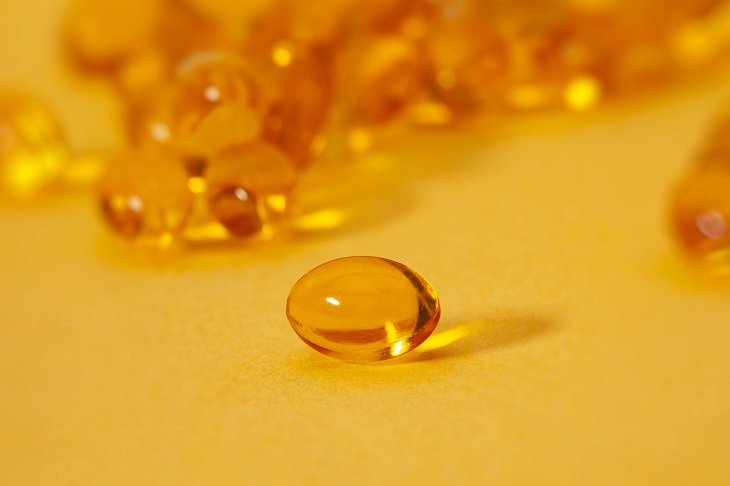The COVID-19 pandemic has been circulating the globe for over a year now. The death toll has reached over 2 million, and over 50 million have contracted the virus. With cases continuing to rise, the general public has been looking for ways to help prevent the spread and transmission of COVID.
A dangerous amount of false information has been circulating about the prevention of COVID-19 and the ways we can keep ourselves safe. Some outlandish claims that have been made with no basis in fact have included the use of colloidal silver, plant-based elixirs, and ultraviolet lamps. This misinformation has led to people believing that they could avoid getting the virus if they bought certain products.
One new health claim making the rounds is the connection between vitamin D and COVID-19. Vitamin D is a fat-soluble vitamin and steroid hormone that can be absorbed into the body through sunlight and some foods. It is needed for bone health, the metabolization of both phosphorous and calcium, and mood regulation. But can it help prevent COVID-19?
Is vitamin D important for the immune system?
There are many health benefits of vitamin D because it plays a role in so many different bodily processes. One such system that relies heavily on having enough vitamin D is the immune system. Research has shown that the nutrient is essential when it comes to fighting off infection and boosting the function of the immune system. This is because it can act as an immune system regulator and initiator.
Studies have also found a direct connection between Vitamin D and the function of immune cells. The findings state that since immune cells have an expressed vitamin D receptor, it is required for them to be able to signal properly. It also plays a vital role in the modulation of both the innate and acquired immune systems.

Does vitamin D protect against COVID-19?
Information regarding vitamin D and COVID-19 is promising, but there is no evidence or information demonstrating that the nutrient can protect against COVID-19. There is currently no cure for the virus and the immune system is the main defender when it comes to recovering from a COVID-19 infection. The only true way to protect oneself against contracting the virus is by following the appropriate safety measures.
These measures will be different depending on your local government and health official regulations, but the mainstays include wearing a mask in areas where you will be in close contact with people; social distancing by way of keeping at least six feet between yourself and another person; and avoiding contact with those who have an active case or symptoms of the infection. You should also be practicing good handwashing and sanitization techniques and avoiding touching your face.
What’s the connection between vitamin D and COVID-19?
Since the immune system relies heavily on vitamin D to ensure that it is functioning properly – and since it’s the only line of defense against the COVID-19 virus – it’s clear that there is a connection between Vitamin D and coronavirus. Without adequate levels of vitamin D, the immune system will not function at its best, and if it doesn’t work properly, the body may have a more difficult time fighting off the virus.
Research has found that having at least 30 ng/mL of vitamin D in the blood led to those hospitalized to have less adverse outcomes and a better fighting chance against the infection. The particular study looked at 235 patients with COVID-19 and found that patients over the age of 40 were more likely to experience milder symptoms if they had adequate levels of the nutrient compared to those who were low or deficient. With a lessened chance of hypoxia and death, vitamin D is looking promising as a way to keep the body healthy in the wake of COVID-19.
Does vitamin D deficiency increase the severity of COVID-19?
Being deficient in vitamin D can lead to several chronic health conditions including diabetes, glucose intolerance, and hypertension. A vitamin D deficiency has also been linked to the increased risk of developing certain viral diseases as well as the increased susceptibility of getting frequent infections.
Other possible health conditions that can arise due to a vitamin D deficiency include:
- Depression
- Fibromyalgia
- Chronic fatigue syndrome
- Osteoporosis
- Alzheimer’s disease
- Development of some cancers including prostate, colon, and breast cancer

The connection between COVID and vitamin D deficiency has been clear in recent studies, which show that not having enough of the nutrient can lead to a heightened risk of developing a more severe case of the virus. One particular study looked at 216 patients with COVID-19 who were hospitalized because of the condition and found that out of the 216, over 80% were deficient in the sunshine vitamin.
In the people with lower levels of vitamin D, high inflammatory markers were also found, and longer hospital stays were also discovered to be a connection between low vitamin D levels and COVID-19 patients.
There is no cure for COVID-19. There are anti-viral medications that can control it, but for the most part when it comes to viruses, the immune system has to fight the battle on its own. Vitamin D is not a cure, nor is it a treatment option for those with severe cases of COVID-19; however, recent promising research shows it could be a helpful assistant in both recovery and in the outcome of the infection.
Featured image by Ainsley Myles on Unsplash